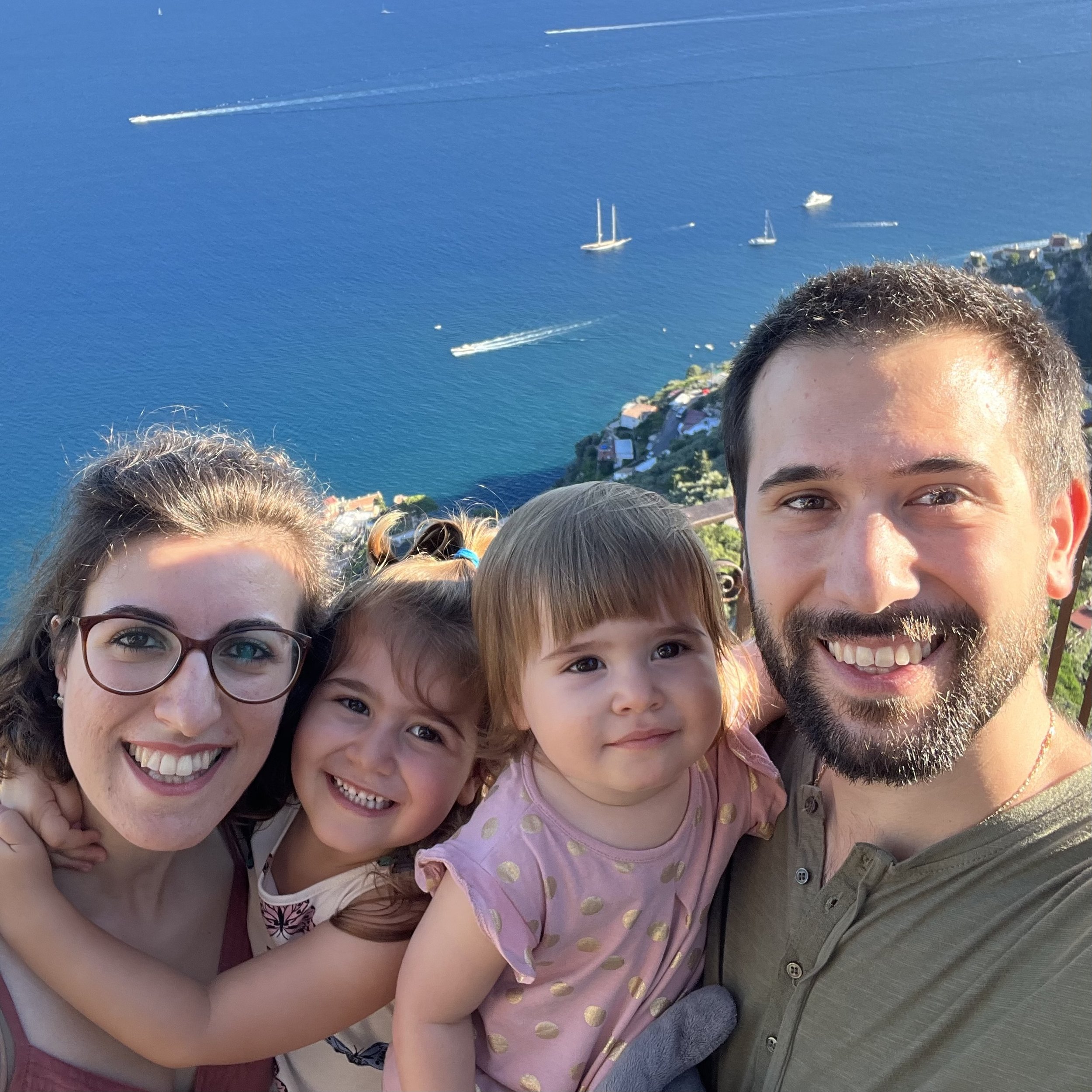Eleonora Grandi
BIO
Postdoctoral researcher at University of Washington in St. Louis (USA). PhD mama with two children.
Eleonora Grandi
“I love both being a mother and a scientist, and as a mum, I gained more resilience, patience, and self-awareness.”
My journey in science started in September 2017, when I was appointed as a PhD student at the University of Groningen (the Netherlands) under the Marie Curie International Training Network. When I started my PhD, I already knew I wanted to build my own family with my husband. I knew the desire to be a mother came first and I did not want a possible career in science to stop me from becoming a mother.
My first daughter Alice was born in 2019, during the second year of PhD. My PhD did not start smoothly. I faced some challenges, starting from learning biology from scratch as a pure chemist and not having a proper mentor following me in the laboratory. When Alice was born, I started to work in another research group and had to learn other new things in a new environment. However, I did not want to give up.
The support from my husband, my parents, and everyone around me was fundamental. Alone I could have never made it. I was lucky to be surrounded by helpful colleagues and a supportive PhD advisor.
While I didn't have a mentor who could offer me daily or weekly guidance, my PhD advisor granted me significant autonomy in managing my time and project. This freedom proved especially valuable when I became a mother and needed to balance my work and family responsibilities. It gives me the chance to get home earlier when needed, to stay at home when my kids are sick, and still, to have the chance to write or read papers while they sleep (when not too exhausted).
When my second daughter arrived in 2021, it was during my last PhD year. It was more challenging because we had to manage 2 kids under 2 and the pressure of finishing the PhD. Many times, I thought about giving up and quitting. Again, my husband played a big role in supporting me and giving me the strength to keep going! In addition, I was never missing support from my parents and our friends, who were always there to remind me why I was doing what I was doing and to make me realize I was managing everything in the best way possible.
After the birth of my second child, I realized the importance of asking for help and began doing so without feeling guilty or ashamed. Whether it was my husband, friends, or colleagues, I reached out whenever I needed support.
Before completing my PhD, I considered leaving academia for a non-science job. However, during the last few months of my PhD, I reflected on my ability to submit my thesis despite managing two pregnancies, deliveries, and caring for two young children. This realization motivated me to continue in academia.
First, I did not want to give up a job that I enjoyed just because I was a mother. Second, I recognized the importance of having more individuals in academia who could advocate for young women and mothers pursuing research careers and becoming principal investigators.
Hence, I started applying for postdocs in Europe and the US. Now, I am currently a postdoc at the University of Washington in St. Louis working with Prof. Jen Heemstra. Eventually, in her, I found a great mentor, who I was looking for my whole Ph., and I have the chance to work in a field I love, a mix between biochemistry and chemical biology, surrounded by amazing colleagues, who are great people and scientists.
Moving to the US from Europe was another huge challenge for our family. With two young girls, dealing with all the changes was hard. However, again in this case we were not left alone. We immediately met people who were willing to help, gentle, and kind. Being a mother in science is hard and I know I will always struggle with the guilt of not being a good mother or a good scientist.
I love both being a mother and a scientist, and as a mum, I gained more resilience, patience, and self-awareness.

